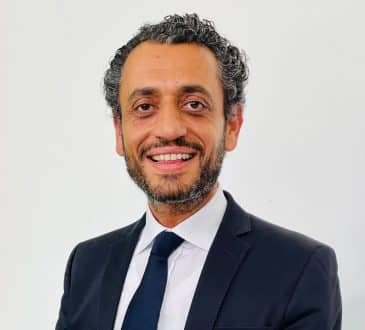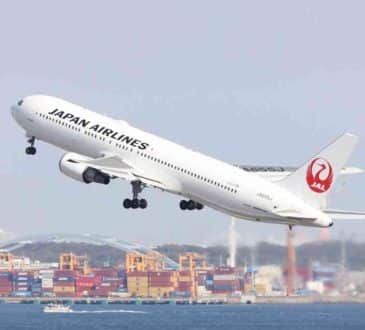The Future Is Global

For businesses large and small in the U.S., global markets offer tremendous potential for developing new customers. Presently, some 96 percent of the world’s consumers live outside the U.S. Taking business abroad, therefore, is not only irresistible, but an essential requirement for any future-focused company’s growth strategy.
The BRIC nations (Brazil, Russia, India, and China) represent significant drivers of growth, accounting for approximately 30 percent of production globally. Other emerging markets, including Mexico, South Korea, Columbia, Indonesia, Egypt, Turkey, and South Africa, have significant GDP growth, an increase in the size of their middle class, and potential for rapid growth and investment.
Of course, location depends on the products, services, and intents of one’s company. Where a business expands will likely be driven by where a company can find consumers. Other considerations include a country’s economic and political stability, cultural and language differences, affordability, taxation requirements and more.
For my adhesives, sealants and coating (AS&C) company, Royal Adhesives & Sealants, we reached the point where the perks of going abroad became attractive in 2013. I had acquired Royal as a platform company using private equity funding in 2003, and through a buy-and-build strategy, by 2012 had sales of $233 million and EBITDA of $31.5 million. When we learned that an adhesive company, ADCO Global, with sales of $240 million was on the market, we believed it could be an excellent strategic fit.
ADCO had operations in Europe and a small foothold in China. This would provide important geographic expansion opportunities. Because Royal and ADCO had little market or technology overlap, this would bring in attractive new markets and technologies that we could extend into each company’s markets.
Arsenal Capital Partners, Royal’s private equity investor at the time, were supportive of the acquisition. We sealed the deal, then went on to acquire adhesives companies in Canada and the UK — adding $50 million to Royal’s annual sales by 2015.
Following are some of the many benefits of branching into foreign markets:
- Access to new ecosystems.
Expanding into a new country gives access to different technologies, resources, connections and opportunities. Many governments, for example, offer lucrative incentives such as lower taxes in exchange for investing in their countries. - Availability of skilled talent.
Internationally minded talent in many emerging countries, with their advanced language skills and diverse educational backgrounds, can improve innovation output. Also, workers outside the U.S. can often be more productive and less expensive. - A more balanced portfolio.
International expansion can insulate a business from seasonal sales fluctuations, constricted supply access or unforeseen events. Dips in demands can be managed more easily with broader markets to tap. - Potential to gain “first-mover advantage.”
Taking a product or service into a new market before your competitors can result in a significant competitive edge, delivering new growth in support of a company’s long-term vision. Companies who are first to arrive not only build strong brand awareness, but capture greater market share. - Great brand exposure.
International companies carry more credibility and prestige. Recognition as a multinational brand opens doors to new partnerships, broader reach for marketing and greater expansion potential.
Globalization isn’t only a trend, but has become a necessary strategy for expansion. For Royal, we both claimed and reaped the benefits of becoming a multinational company. In 2016, Royal was purchased by H.B. Fuller for $1.6 billion.
Written by Theodore (Ted) Clark.
Have you read?
3 Tips for Ensuring Your Client Work Is Steeped in DEI Values by Tony Hobley.
To Build Your Strategic Plan, First Know What Business You’re In by Frank O’Connell.
Chris Rapczynski Celebrates Three Decades of Leadership in the Boston Construction Community.
Here’s My Counteroffer”: How to Sharpen Your Skills and Negotiate Like a Pro by Jakob Wissel.
Ready for Adventure? Here Are 7 Outside-the-box Ideas for Adding Excitement to Your Repertoire by Dr. Joel Lavine.
Add CEOWORLD magazine to your Google News feed.
Follow CEOWORLD magazine headlines on: Google News, LinkedIn, Twitter, and Facebook.
This report/news/ranking/statistics has been prepared only for general guidance on matters of interest and does not constitute professional advice. You should not act upon the information contained in this publication without obtaining specific professional advice. No representation or warranty (express or implied) is given as to the accuracy or completeness of the information contained in this publication, and, to the extent permitted by law, CEOWORLD magazine does not accept or assume any liability, responsibility or duty of care for any consequences of you or anyone else acting, or refraining to act, in reliance on the information contained in this publication or for any decision based on it.
Copyright 2024 The CEOWORLD magazine. All rights reserved. This material (and any extract from it) must not be copied, redistributed or placed on any website, without CEOWORLD magazine' prior written consent. For media queries, please contact: info@ceoworld.biz
SUBSCRIBE NEWSLETTER








